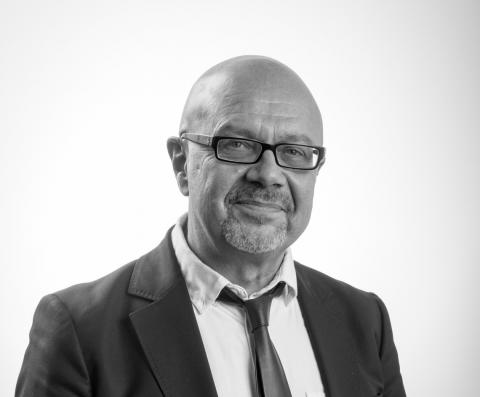
André Torre, expert on territorial development, proximity and conflicts
André Torre wears three hats: he is research director at France's National Institute for Agricultural Research (INRA), works at AgroParisTech and heads the Paris-Saclay Humanities and Social Sciences Center (MSH Paris-Saclay). By virtue of his research in the social sciences, poised at the intersection of industrial and spatial economics, he has made a name for himself as an expert on territorial development from the standpoint of proximity and territorial conflicts.
André Torre never actually intended to be a researcher. After receiving a literature-oriented baccalaureate, he left his native Corsica to study economics in Nice, where revelation struck! After successfully defending a PhD thesis in mathematical economics, he joined the French National Center for Scientific Research (CNRS) in Sophia Antipolis as a researcher.
His very own "Team Proximity"
"The study of local and territorial economics is a life-long passion," admits André Torre. Very early in his career, he became interested in regional innovation, known before 1986 as "technical progress", recalling that "industrial economists were starting to focus on the spatial dimension, while regional and spatial economists were broadening their scope of study from territorial issues to the localization of industries." Like any good modeler, André Torre set out to garner data for his research on territorial development and innovation. In 1991, he set up a group called "Dynamiques de proximité" (Proximity Dynamics) with six fellow economists. Four years later, he co-authored a seminal work, Économie industrielle et économie spatiale (Industrial and spatial economics), with Alain Rallet, professor emeritus of Université Paris-Sud.
Attracted to socioeconomics
Returning to Corsica, the 36-year-old researcher became a research director in development economics at INRA. For four years, he worked in a multidisciplinary research lab – which only had two economists on staff. At the same time, he taught economics at university level in Corte, an experience which, he claims, allowed him to review the basics! "You learn as you teach!" he quips. His discussions with colleagues at INRA made him realize the importance of multidisciplinarity. He began to shift from conventional economics towards "a deductive form of socio-economics."
A network fascinated with conflict
In 1997, André Torre began to work for AgroParisTech in Paris at a joint laboratory that was being reorganized. He became an associate professor at the Sceaux campus of Université Paris-Sud. A year later, he chose a topic for his economics research about which no data was available, i.e. conflicts arising in rural areas of mainland and overseas France. He devised a data description and analysis method that is still highly regarded today and compiled a database with input from three different sources: interviews with experts, daily regional press articles and articles about jurisprudence. "Gradually, I developed solid ties with researchers in different fields that were interested in the subject," he remarks. He set up a specific "Conflicts" network that progressively gained legitimacy.
Conflict, the mother of invention
In the 2000s, André Torre's two favorite fields of study, "conflict" and "proximity", were converging and attracting attention. Conflict was the subject of his national-level research at INRA. As for proximity, "it went on to become one of the burning issues in social sciences today." One of the world's two proximity theorists, André Torre figures as "Mr. Proximity" in France. Since 1993, he has published ten books and more than 100 articles on the subject, the most often cited being "Proximity and Localisation", co-authored with Alain Rallet. The INRA research team opted in favor of the name "Proximité" (Proximity). Finally, mention might be made of the "Conflits et Territoires" seminar, which has taken place once a month for the last 14 years.
Over the last decade, André Torre's work has centered on territorial innovation. "In analyzing social, organizational and institutional innovations, I discovered that they not only arise out of cooperation, but also spring from conflict." This observation rings true in light of the recent "Gilets Jaunes" wave of grassroots protest in France, which has not surprised André Torre in the least. "This movement reveals how deeply people feel – to the point of mental distress – that their level of well-being has deteriorated. This is the consequence of fifty years of territorial neglect and crushing centralism."
Collaboration and interdisciplinarity
As director of research programs "for and about regional development", André Torre coordinates 450 researchers working on 33 multidisciplinary projects involving ten regional councils. His main job at INRA, he says, is to supervise calls for proposals. His other job is at Paris-Saclay, where he has directed the Humanities and Social Sciences Center (MSH Paris-Saclay) since 2018. "The center originated in a few researchers' desire to structure the social sciences. We encourage those working in different study fields to collaborate. In 2018, we funded and helped organize 92 events including colloquia, seminars and workshops. We also fund research projects within the framework of various programs." MSH Paris-Saclay also publishes two journals, books and articles as well as, more recently, the first directory listing all humanities and social sciences (HSS) researchers at Université Paris-Saclay. This valuable tool bears witness to the breadth and depth of HSS research at the university.

